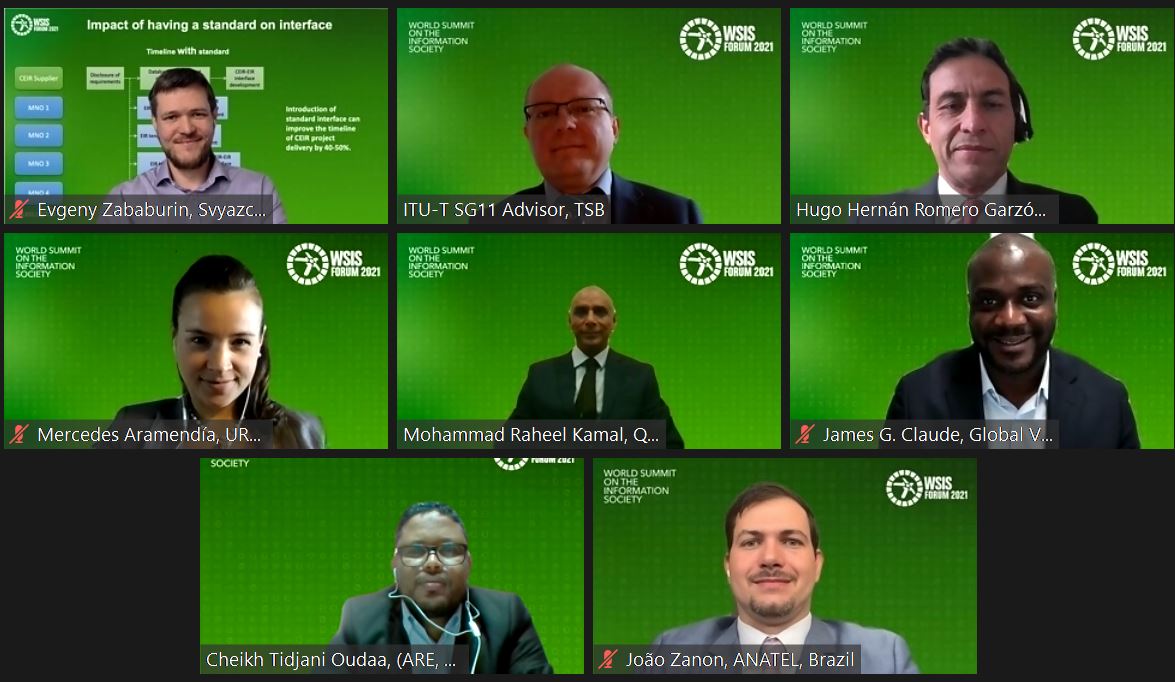Combating counterfeit telecommunication/ICT devices and software
ITU-T Study Group 11 "Signalling requirements, protocols, test specifications and combating counterfeit products"
Session 406
Nowadays, a considerable number of telecommunication/ICT devices have been found to be counterfeit and have created concerns about national security, performance, quality of service delivery and revenue losses for all stakeholders. This has led to calls by ITU Member States, particularly those in developing countries to address the issue, especially the negative effects and to study any positive impact of measures taken.
This session will provide an overview of existing challenges, solutions and standardization activities on combating counterfeiting of ICT devices and software which are currently under study in ITU-T SG11 "Signalling requirements, protocols, test specifications and combating counterfeit products". The session will also provide a platform for discussion among all stakeholders about the key challenges that they now face and identify the potential new standardization areas which ITU may need to consider.
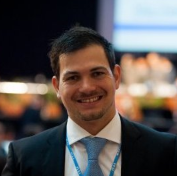
Mr. Joao ZANON is a telecommunication engineer that works at ANATEL´s Regulatory Division, which is responsible for the development of regulatory policies regarding telecommunications services in Brazil.Currently, he is one of the coordinators of the Regulatory team and lead key project such as the national initiative on the combat of counterfeit and stolen ICT devices and other mobile telecommunication related initiatives.
Mr. Zanon actively contributes on international forums, such as ITU, REGULATE and CITEL Permanent Consultative Committee I – PCC.I (responsible for telecommunication/ICT discussion). At World Telecommunication Standardization Assembly (WTSA-16) he was appointed as Vice-Chairman of ITU-T SG11 and currently is the Chairman of WP4/11 "Combating counterfeit telecommunication/ICT devices/software and mobile device theft" and rapporteur of the Question Q15/11, the experts’ group at ITU-T responsible for the topic.
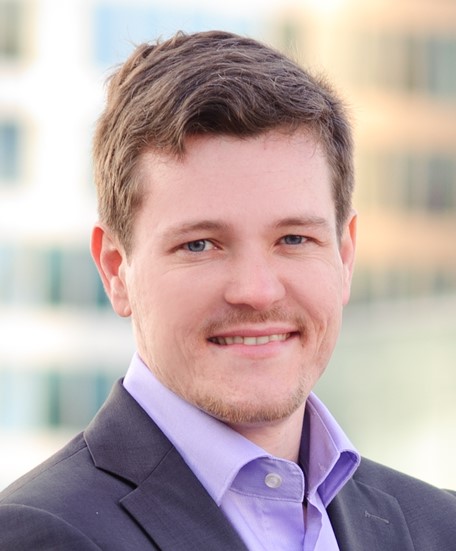
Evgeny ZABABURIN is International Business Development Manager at software development company Svayzcom. Evgeny has almost 20 years of extensive and broad-ranging experience in an international telecommunication environment, comprising some of the world's largest telecom solutions vendor, national scale system integrators as well as innovation IT clusters and startup companies in the domains of Value-Added Services (VAS), eSIM infrastructure and CEIR/EIR.
Mr. Zababurin interacts with regulators and international organizations, contributes to the ITU-T SG11 on combating counterfeit telecommunication/ICT devices/software and mobile device theft.
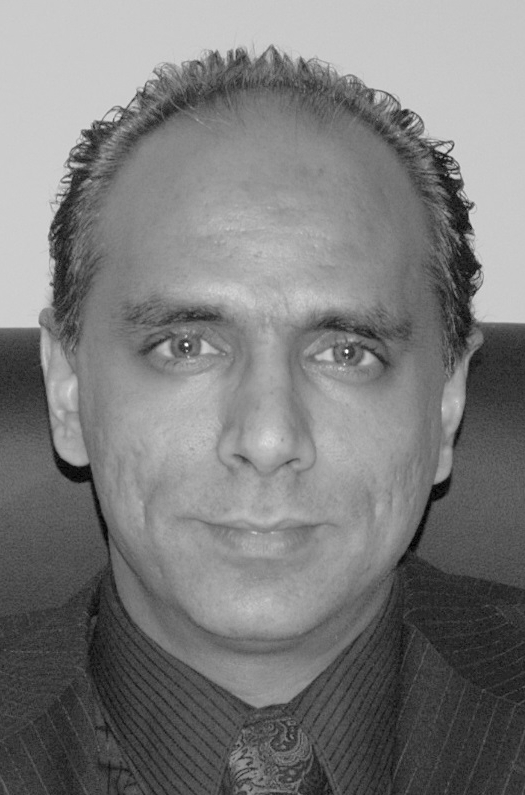
Mohammad Raheel Kamal is a Senior Director at Qualcomm with over 27 years of mobile and wireless industry experience. He works with the industry in developing strategies and technical solutions to address issues of mobile counterfeiting, smuggling, and theft. He leads the open-source DIRBS platform efforts that aim to reduce the influx of counterfeit, stolen and illegal devices in the country. He works closely and collaborates with other global telecom organizations including the ITU, MWF and GSMA to shape the mobile ecosystem towards genuine devices. His vast industry knowledge spans across multiple disciplines including systems engineering, software development, mobile & satellite system deployments, and telecom policy & regulatory framework.
He has played an integral role in driving technology initiatives and has provided strategic direction and technical & business development support for the adoption of mobile technologies. He has worked closely with many governments and regulators for policy development, technology licensing, and spectrum auctions.
He serves as the Chair of Counterfeit & Security Working Group of the Mobile and Wireless Forum (MWF) and the Chair of the Joint Device Identification Taskforce – a GSMA / MWF joint industry taskforce.
He holds a Master of Science degree in Computer Engineering from the University of Southern California (USC), Los Angeles.
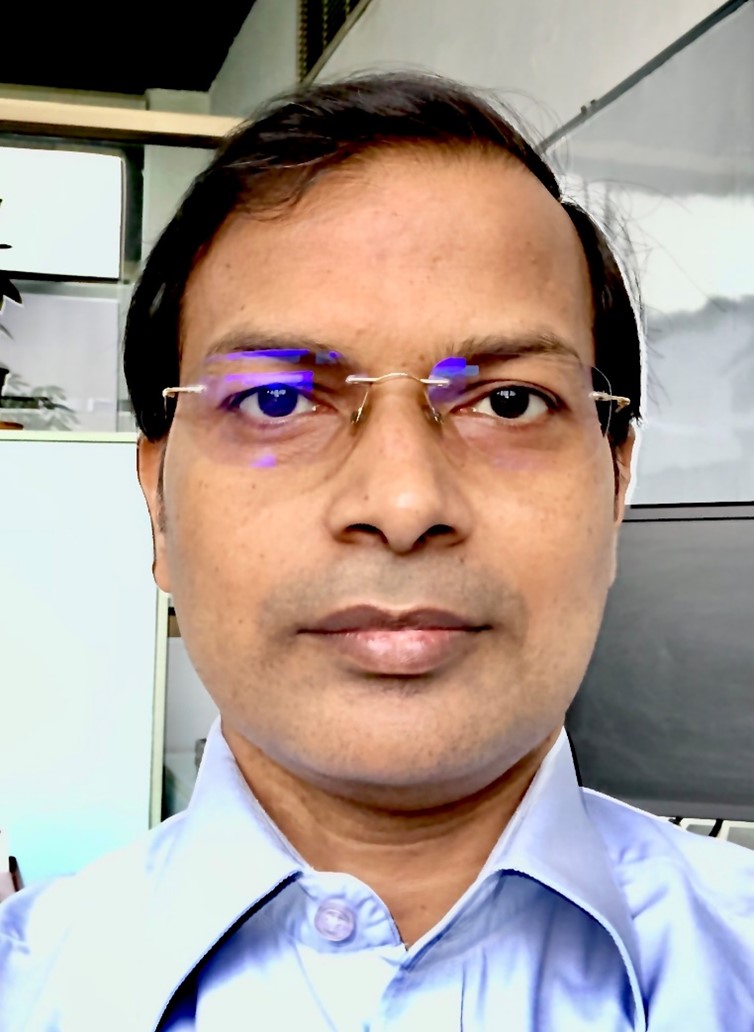
Biren Karmakar is a Group Leader from Centre for Development of Telematics i.e. C-DOT, a premium research and development centre of the Department of Telecommunication, Govt. of India. He has done Masters in Computer from Jadavpur University, Kolkata. In the last twenty-five years of his association with C-DOT, he has worked in many fields including Switching technology, GSM technology. For the past 12 years, he has been working on design and development project for National Security. Currently, he is working on Central Equipment Identity Register i.e. CEIR to curtail counterfeit mobile phones and discourage mobile phone theft.
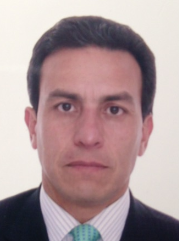
Hugo Romero is an Electrical Engineer from the National University of Colombia, with specialization in Telecommunication Business Management at the University of the Andes. He has been working for telecommunications sector for 30 years.
He has been linked to the Communications Regulation Commission for 9 years, where he has served as an adviser in telecommunications regulatory studies and projects such as Measures against theft of cell phones, International Mobile Roaming Service, Blocking radio signals in prisons, National Telecommunications System in Emergencies, Accounting Separation, Quality of Services, Access and interconnection, among other topics.
In his professional career he worked also in telecommunications sector companies such as mobile operators directing for 15 years areas such as International Roaming Service, Fraud Control and Revenue Assurance.

James Claude currently holds the position of CEO at Global Voice Group, after more than 13 years working for the company. During that time, he was an active driver of GVG’s international expansion and product diversification strategy. Mr Claude’s prior experience as VP of technology, as well as his extensive technology know-how and thorough understanding of the digital transformation ecosystem, all form a solid foundation for his leadership.
Over the years, he has played an increasingly important role in the strategies and orientations of the company, as CTO and, more recently, as he Deputy CEO. Only one year after being appointed CEO, James Claude has driven GVG’s Innovation Strategy one crucial step further, by leading the creation of a company fund to invest in entrepreneurship. Focused on start-ups, with outstanding capabilities, this new investment vehicle has been created to encourage entrepreneurship in Africa by scaling up business models, through sustainable growth strategies.
Starting as a Network Operations Centre manager for GVG in 2005, he rapidly led the technical aspects of many of the company's projects for telecommunications regulatory authorities, until his nomination as Chief Technology Officer in 2012. For more than a decade, James has been one of the key members of the company’s management team.
Fluent in English, Spanish and French, Mr Claude holds a Master’s Degree in Management from Boston University and a First Degree in Telematics Engineering from the Pontificia Universidad Católica Madre y Maestra. He has also completed countless training courses in advanced technologies.
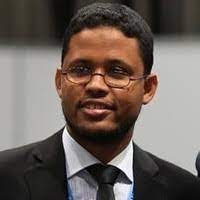
Mr Cheikh Tijani Oudaa, is currently Head of technical department, telecommunications Regulation Authority in Mauritania. He has over 10 years of experience in ICT Policies and Regulation. He served as Rapporteur for the Q4/2, ITU-D SG2, for two study periods from 2014 to 2021. Oudaa holds a Bachelor degree in Electronics, Electrical Engineering from Nouakchott University Mauritania, a master degree in information processing from Moulay Ismail university (Morocco) and a master degree in Digital Economy Regulation from Télécom Paris (France).
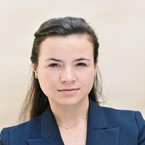
Mrs. Mercedes Aramendía is the president of the Uruguayan Regulatory Unit of Communication Services (URSEC).
She has an LLM in Law, Technology and Entrepreneurship from Cornell Law Scholl, Cornell Tech, United States of America. She is a lawyer from the University of Montevideo, Uruguay. She has a Master in Administrative - Economic Law from the same University, and an MBA from Camilo José Cela University - EAE Business School, Madrid, Spain. She also has a degree in Law and a Master´s Degree in Access to the Legal Profession from the Antonio de Nebrija University, Spain.
She has broad experience in the telecommunications sector, collaborating with different organizations. Also, she is the Director of the Postgraduate Course named “Digital Transformation and the Law” at the University of Montevideo and is a Professor at the same University.
She has been the coordinator and co-author of three books published in Uruguay related to telecommunications, and has written several articles related to digital rights.
Before being nominated as President of the Board of the URSEC, she has been running the Company name “Mercedes Aramendía” since 2018, from where she worked and collaborated with various telecommunication, technology, and entrepreneurship organizations. Before 2018, she worked as the Head of Institutional Relations and Regulation at Telefónica Móviles del Uruguay, as the Lawyer of the Chamber of Telecommunications in Uruguay, and as lawyer in KPMG Uruguay.
In 2019, she was recognized by URSEC as one of the outstanding Uruguayan women in regulation and / or communications. In 2021, she was recognized by DPL News a one of the twenty-five women leaders who will define the digital course.
-
 C2. Information and communication infrastructure
C2. Information and communication infrastructure
-
 C5. Building confidence and security in use of ICTs
C5. Building confidence and security in use of ICTs
-
 C9. Media
C9. Media
-
 C11. International and regional cooperation
C11. International and regional cooperation
Combating counterfeiting ICT devices is the way to prevent their negative impact on network infrastructure itself (C2).
Combating counterfeiting of ICT devices/software is a one of the tools to be used for consumer protection (C5).
Combating counterfeiting software is linked with the combatting illegal and harmful content in the media (C9).
Combating counterfeiting is an international issue where all stakeholders need to be involved (C11).
-
 Goal 9: Build resilient infrastructure, promote sustainable industrialization and foster innovation
Goal 9: Build resilient infrastructure, promote sustainable industrialization and foster innovation
Vendors lose their revenues due to large market of counterfeit devices while network operators face the challenges on growth of connected counterfeit devices which decrease QoS on their networks (SDG9).
www.itu.int/go/tsg11
www.itu.int/go/CS-ICT
